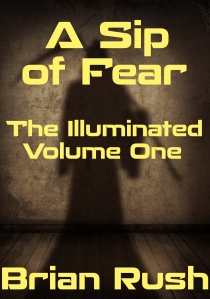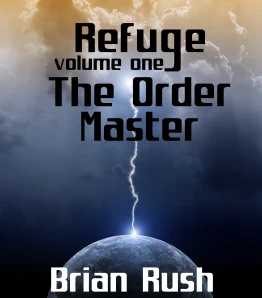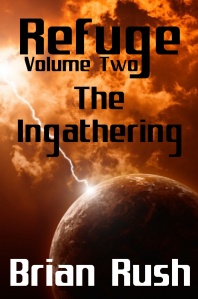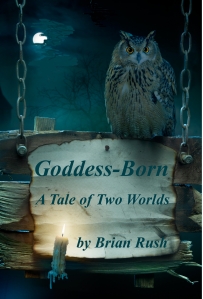As I’ve suggested in many posts on this blog, there’s a lot of crossover between fantasy fiction and spirituality. In my case, that’s especially true of dragons. Dragons are fantasy creatures appearing in many different forms in many works of fantasy. In all cases, dragons are big, powerful, and potentially very scary. Often they are also highly intelligent and cunning, although sometimes they are just big scary beasts. Dragons have elemental, magical powers in many conceptions that are normally denied to big scary beasts, including flight (I mean, seriously, consult some basic physics and biology — even an ostrich is too big to fly, let alone a reptile the size of a mansion), fiery breath or another form of elemental long-range armament, and sometimes magic itself.
Many fantasy treatments make dragons hostile, evil creatures. That was certainly the case of Tolkien’s dragons, which were creations of the Dark Lord Melkor/Morgoth intended to spread destruction and ruin. A dragon appears in the Book of Revelations in the Bible as an image of evil, a form of Satan. Some make dragons benign, more in the spirit of Chinese dragon lore in which the dragon is an icon of the creative force or of Heaven. In a few cases, notably Robin Hobb’s treatment of the creatures in her fiction set in the world that includes the Six Duchies and the Rain Wilds, dragons are neither good nor evil but simply magnificent creatures with whom humanity shares the world. That was also somewhat the case in Ursula LeGuin’s Earthsea trilogy, although those books were written from a more narrow human perspective and the dragons were hostile to humankind, yet beyond human moral judgments.
The dragon is particularly important to me because it is my primary totem image. In a vision achieved through shamanic vision quest stimulated by fasting, drumming, and trance, the dragon answered my call and has been a guide and protector to me ever since. (I wrote a poem recounting the experience and the insights the dragon has brought years ago: Hymn to the Dragon Spirit.) So for me, the spiritual implication of the dragon in real life is very important.
I haven’t used dragons a lot in my fantasy writing so far. I did include one inThe Child of Paradox (Book 2 of The Star Mages) where a dragon appeared in the Background Realm (a vehicle for just about any fantasy element I wanted and a way to sidestep the limitations of contemporary fantasy) and gave advice to Falcon, Dolphin, and Angée involving a disturbing development in their conflict with the Sword. But that dragon, Azure, was not a main character nor a main plot line.
The ambivalent way in which dragons appear in both fantasy and myth — benign or hostile, good or evil, sacred or devilish, but always powerful and frightening — makes them an interesting element to think about, and that’s what I want to discuss today.
The dragon is reptilian, and yet it’s usually much more intelligent than any reptile, and that means, taking advantage of modern knowledge that was unavailable to our distant ancestors who first crafted this myth, that perhaps the dragon is more a fantasy dinosaur than a fantasy reptile. (Dinosaurs are no longer classified as reptiles; many of them are believed to have been warm-blooded, quite likely feathered, and the ancestors of modern birds.) It is an aspect of nature foreign to human beings, more so than dangerous mammals such as big cats or wolves who are more closely related to us. The dragon is a mythic image of nature in all its wildness, indifference to our well-being, beauty, power, wisdom, and danger. This perhaps accounts for the different treatment of dragons in Christian and ancient Chinese myth. Christianity is entirely human-centered, with man as the center of the universe and the absolutely unique object of divine interest (God having sacrificed His “only begotten son” not for the world or nature in general but for us), while the older Chinese mythic structure has a little closer tie to the pre-civilied view of man as a part of and subordinate to nature and of nature itself as being divine. The same mythic/fantasy concept is touched upon in both conceptions, but in one it is good because it is an embodiment of sacred nature, while in the other it is evil because it is untamed and (at least potentially) hostile to humanity. The difference is not in the creature itself but in our own attitude towards it, and whether we are capable of reverencing nature when it presents a danger to ourselves.
(Remember that the imagination has power and myth has its own reality; we are not free to imagine dragons or anything else entirely as we please, without losing the essence of the myth and its power over our souls. Dragons have been stripped of their mythic qualities in a few works of fantasy but always with humorous intent. In serious fantasy, the dragon is always an awesome and terrifying creature to be treated with great respect, if not necessarily with reverence.)
In an earlier post (Fantasy, Spirituality and Environmentalism), I noted that as our moral and spiritual views evolve in the course of transitioning from classical to advanced civilization, we are adopting a third view of man’s relationship to nature, neither the “man as subordinate” view of pre-civilized cultures nor the “man as dominator” view of agrarian civilization, but a man as caretaker view in which it becomes our responsibility to protect the natural world, first from ourselves, and then from anything else that may threaten it. In this view, a dragon as a mythic embodiment of nature itself would be approached properly by us neither with “It’s great and holy and we must reverence it (and if it eats a few of us that’s a sacred sacrifice),” nor with “It’s an abominable, evil creature and we must destroy it,” but with “It’s beautiful and irreplaceable and we must protect it lest it be lost forever.” There have already been two fantasy treatments of dragons that fit this motif. One is Robin Hobb’s remarkable dragons in her Liveship Traders and Rain Wild Traders books. The other is George R.R. Martin’s dragons in his Song of Ice and Fire, where dragons are the source of all the magic in the world and if they become extinct (which nearly happened) we will be much the poorer and our survival itself will be threatened by the forces of ice, cold, and death.
Which can also be said of nature itself.
Image credit: ancello / 123RF Stock Photo








Nice post, and great new look for your blog!
Have you ever read Mark Chadbourn’s “Age of Misrule” books? The dragon is treated as a symbol of life and existence in the books, similar to the Chinese view, but that’s certainly not the only reason you should read it.
A lovely post about a great creature in literature. I loved the Dragonriders of Pern by Anne McCaffrey. I had stumbled upon her series by accident and fell in love with her work. I can see why you have an interest in them. The dragons, not McCaffrey’s work. Well done on getting Freshly Pressed! 🙂
Superb blog! It has also occurred to me that fantasy and spirituality share a common thread, and you express that linkage well with your discussion of dragons – creatures that are beyond our control and can never be conquered, and because of this, make the world a bigger and more interesting place.
I have two series of earlier posts you may find interesting that explore other aspects of this, ten in all, the series of “Elements of Fantasy” posts and the “Crafting Religion” posts. It’s been on my mind for over a year.
Have you read Eragon? That’s my favourite dragon story, but also Eon: Rise of the Dragoneye.
When I think of dragons, I think of Pern.
Congratulations on being Freshly Pressed, Brian: your in box will now runneth over! Funnily enough, I’ve been thinking about dragons this week too, and I posted some thoughts on another aspect of their character: the dragon hoard, and the fact that our scaly friends never seem to do much with it…http://alastairsavage.wordpress.com/2012/08/16/dragon-hoard/
You are soooooo right about the inbox! I love it, though. 🙂
I loves it sooo much!!! I also include dragons in my own personal animal medicine, and this is great. It’s like you’re my new best friend on the first day of school or something. haha… Amazing creatures and I loved reading what you had to say about them. Happy monday!
I have enjoyed their appearance in tales since I was a child. I like how Pratchett treated them in Guards Guards.
This is a top-notch post!
Really interesting post. I’m fascinated by the role of dragons in sci-fi/fantasy and had a half-formed sense that the need to protect/cherish or even recover these creatures from extinction was becoming more prevalent – having already been firmly established by the 1980s. I’m basing that off a few things you haven’t mentioned, see “Flight of Dragons” (1982 animation), Stephen Donaldson’s short story “Daughter of Regals” (1984), Raymond Feist (with debt to Anne McCaffrey), and the Draco nobilis of Pratchet’s Discworld. Anymore ayone?
I’m getting lots of tips to stories I haven’t read yet, which is a nice bonus. Thanks!
super cool shit! particularly about the primary totem spirit bit. i’m always very fascinated by shamanic experiences, so thanks for sharing!
Very nice meditation on dragons and their relative metaphors. That which lies without (nature) also lies within. I think we are afraid of our own awesome powers– and we should be in awe as we have transformed our planet– and so we use the dragon, the mythic embodiment of nature, to embody our fears. Learning to treat a dragon respectfully in storytelling could be a precursor to learning how to respect ourselves and our humanity.
Many fairy tales along with fantasy have deep spiritual messages embedded within them. JRR Tolkien was a devoted Catholic and CS Lewis of course was a Christian apologist. Madeleine L’Engle’s writings were also along the same veins.
I wrote about something similar but focused more on the fairy tale genre instead of fantasy: http://earthenergyreader.wordpress.com/2012/06/15/the-wisdom-of-fairy-tales/
With out fantasy daily life would be boring.Great post.Jalal
My husband and I have quite a collection of dragon figurines/pendants and consider them to be beautiful, fierce protectors. Excellent article! Added you to my follow list!
Love it!
Its neat how so many cultures haave thought up dragons, without ever coming in contact with each other.
Great read =]
I like the dichotomy of the world views on dragons; I had never thought of it that way and I do agree, the third philosophy on dragons is a great fit for how I have always thought of them. Thanks for posting.
In the Bible, in Revelation Chapter 12, the dragon is described as Satan. He is described as “an enormous red dragon” in verse 3 of Revelation, Chapter 12, The dragon is described as that “ancient serpent”, “the devil”, and “Satan”in verse 9 of Revelation, Chapter 12.. This dragon is described as having an enormous hatred for Israel and Christians.
It’s amazing how so many are so admiring of the dragon.
Connie
http://7thandvine.wordpress.com/
I did mention that passage of Revelations in the article, Connie (although I didn’t cite chapter and verse and I appreciate your identification of them for those who would like to look it up). However, you must understand that this interpretation of that passage isn’t universal among Christians, and also that not everyone is a Christian.
Regarding variations in Christian viewpoint, it’s clear enough that the Revelation reference was to Satan, and that the Dragon was used as an image or metaphor for Satan; this does not necessarily have anything to do with dragons as they appear in other contexts. A metaphor may mean different things depending on context, and dragons in a different context may mean something different from what the dragon was intended to convey in Revelation.
Regarding views outside Christianity (which includes my own), of course a completely different understanding may prevail.
Wasn’t there a movie, with the dragon voice by Sean Connery (sigh), which stated something similar about the connection between dragons and magic?
Congrats on getting pressed
I vaguely remember a movie with Connery’s voice as the dragon, but can’t recall anything else about it.
Pingback: What I love about my W.I.P. | J. Keller Ford ~ YA Fantasy Author
I met a dragon in person and I can tell you it was less scary than beautiful and at the same time astonishing. He felt from the roof and then transformed… just take a look into my drawings, it is all written down! (http://brillenschnitzel.wordpress.com) I really think we should overthink the dragon concept – they are the true masters of the universe!
As an old school D&D gamer, I had to read this. Excellent and thought-provoking article, I never thought much about dragons in mythology and culture.
Reblogged this on my full research.
Thanks!
Very interesting argument. Congrats. I reblogged it.
My contribution here is a sort of reference to texts easily searchable on the Web.
1. The Gutenberg Project
The Evolution of the Dragon by Sir Grafton Elliot Smith
2. The INTERNET ARCHIVE, TEXTS area, for the string ‘DRAGON’ the search engine produces 537 items (fiction & essays)
3. The SACRED TEXT ARCHIVE shows 8 essays regarding ‘dragons’ (The Babylonian Legends of Creation, The Celtic Dragon Myth. Sacred Places in China, Mythical Monsters, Fictitious and Symbolic Creatures in Art, The Evolution of the Dragon, Worship of the Serpent, Dragons and Dragon Lore)
4. In the Buddhist area, a good example of connection of dragons with faith & religion & spirituality can be found in
Dragon-King Sutra Stanzas,
which in original is within the Cinese Tripitaka and here is translated by the Buddhist Yogi C. M. Chen
URL : http://www.yogichen.org/cw/cw30/bk058.html
Have a nice week, Brian. 🙂
mfr
The nation of China has a tremendous interest in everything “Dragon”. You see the images of dragons everywhere. The worship of the dragon always reminds me of Revelation 12 of the Bible as I said in the above comment.
The dragon represents evil, rage, hate, and Satan himself. The dragon is eternally at war with Christ.
Revelation 13 says that people will worship the dragon. Also read Revelation, Chapter 16 and Revelation 20.
Connie
Sorry, Connie, can’t buy that. The dragon is NOT, in most usages, a symbol of rage or hate. It’s a symbol of nature and of wisdom. That’s demonstrably so.
When scripture seems to be saying something that is obviously, observably, demonstrably wrong, there are two possibilities. Either the scripture is being misinterpreted, or it is simply wrong. Either of those is equally defensible and I’ll leave it up to you which you prefer.
Interesting post. I’ve always been fascinated with mythological creatures like dragons, mermaids, sirens, etc. Your post offered a wide variety of info and was enjoyable to read!
That was a very interesting perspective. I’d never thought about dragons like that before. I thought about them as intelligent and scary, but that was about it – for most dragons, that is. Thank you.
interesting
Have you seen “The Adventures of Merlin” produced by the BBC? The young Merlin is a dragon master and there is one dragon left on the Earth and he controls it. The dragon is also very wise with magical powers, but Merlin seldom listens to its advice, which often gets him into trouble.
I’m watching the third season on DVD now. There is a fourth season but it hasn’t been released on DVD in the US yet.
No, I haven’t seen that. Thanks for the tip.
I’ve never heard of someone claiming a dragon as their totem animal. I find that to be fascinating. Excellent post. I’ll be stopping back here.
Eragon is one of my favorite story; still i can remember the story while i read some years before.
Interesting and informative:)
Reblogged this on Jay .
Thanks very much!
nice post 🙂
Reblogged this on Writing Underdog.
Thanks, I really appreciate it.
I always like re-blogging things I like reading. Keep up the excellent posts!
Great image there. I wish I could draw that good.
Me, too! I didn’t draw that picture; you can find the source in the link at the end of the article.
when I was a kid, I always had an attraction towards dragons and mythical creatures. I was kind of that nerdy sci-fi loving kid growing up. I really appreciate this post because it brought me back to that palce from my childood that I had forgotten. Great post, I enjoyed your writing very much
for someone who is a dragon person, i so very much enjoyed reading your post! well written! 🙂
Pingback: Enter: the metallic dragons | J. Keller Ford ~ YA Fantasy Author
Love this! I did a dragon painting a few weeks ago and I learned people really like dragons! Great post!
Reblogged this on Tammy Murray Summary.
Pingback: The Next Big Thing | J. Keller Ford ~ YA Fantasy Author
Heya i am for the first time here. I came across this board and I find It really
useful & it helped me out much. I hope to give something back and aid others
like you helped me.